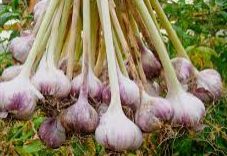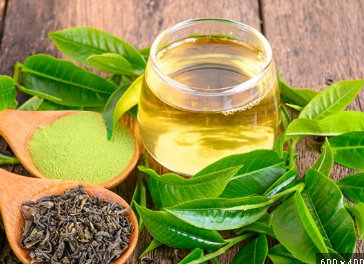How to keep you kidney Healthy ?
Optimizing Kidney Health: Essential Foods and Habits for a Vibrant Lifestyle
Introduction:
The kidneys play a crucial role in maintaining the body’s overall health by filtering waste products, regulating blood pressure, and balancing electrolytes. As essential as they are, it is vital to adopt a proactive approach to keep our kidneys healthy. This essay aims to outline various strategies and lifestyle choices that contribute to optimal kidney health.
Stay Hydrated to keep you kidney Healthy:
One of the simplest yet most effective ways to promote kidney health is by staying adequately hydrated.
- Drinking an ample amount of water helps to flush out toxins from the body and prevents the formation of kidney stones.
- Adequate hydration supports the kidneys in maintaining proper electrolyte balance, essential for their optimal functioning.
Balanced Diet to keep you kidney Healthy
A balanced and nutritious diet is fundamental for kidney health. Consuming a variety of fruits, vegetables, whole grains, and lean proteins provides essential nutrients without overloading the kidneys with excessive amounts of certain minerals.
Limiting salt intake helps to manage blood pressure, reducing the risk of kidney damage.
Control Blood Pressure to keep you kidney Healthy
High blood pressure can damage the blood vessels in the kidneys, leading to kidney disease.
Regular monitoring of blood pressure and lifestyle modifications such as a healthy diet, regular exercise, and stress management can contribute to maintaining optimal blood pressure levels.
Maintain a Healthy Weight to keep you kidney Healthy
Being overweight or obese increases the risk of developing kidney disease.
Adopting a healthy lifestyle that includes regular physical activity and a balanced diet not only helps in weight management but also supports overall kidney health.
Regular Exercise to keep you kidney Healthy
Regular physical activity promotes cardiovascular health, which is closely linked to kidney health.
Exercise improves blood circulation, reduces the risk of diabetes and hypertension, and helps maintain a healthy weight, all of which contribute to optimal kidney function.
Avoid Alcohol to keep you kidney Healthy
Alcohol consumption can lead to dehydration and high blood pressure, both of which can be detrimental to kidney health.
Quit Smoking to keep you kidney Healthy
Smoking has been linked to the development and progression of kidney disease.
Quitting smoking not only benefits the lungs and heart but also contributes to better kidney health.
Manage Diabetes to keep you kidney Healthy
For individuals with diabetes, proper management of blood sugar levels is crucial to prevent kidney damage.
Regular monitoring, medication adherence, and a healthy lifestyle can help control diabetes and protect the kidneys.
Regular Health Check-ups to keep you kidney Healthy
- Regular health check-ups and screenings are essential for early detection and management of any potential kidney-related issues.
- Monitoring kidney function through blood and urine tests can help identify problems at an early stage when they are manageable.
Limit Over-the-Counter Medications to keep you kidney Healthy
- Certain over-the-counter medications, when used excessively or without proper guidance, can have adverse effects on kidney health.
- Non-steroidal anti-inflammatory drugs (NSAIDs) are known to potentially cause kidney damage when used inappropriately. Consultation with a healthcare professional before prolonged or excessive use of such medications is advisable.
Adequate Sleep to keep you kidney Healthy:
- Quality sleep is crucial for overall health, including kidney function.
- During sleep, the body undergoes essential processes of repair and rejuvenation, contributing to the overall well-being of organs, including the kidneys. Aim for 7-8 hours of sleep each night to support optimal kidney health.
Manage Stress to keep you kidney Healthy
Chronic stress can contribute to various health issues, including hypertension, which can negatively impact kidney function. Incorporating stress management techniques such as meditation, deep breathing exercises, or hobbies into daily life can contribute to a healthier mind and body.
Avoid Excessive Caffeine Intake to keep you kidney Healthy
- While moderate caffeine consumption is generally considered safe, excessive intake can lead to dehydration, potentially affecting kidney function.
- Maintaining a balanced approach to caffeine consumption, including staying hydrated with water, is essential for kidney health.
Herbal Supplements to keep you kidney Healthy
- Some herbal supplements and alternative medicines may have the potential to harm the kidneys.
- It is crucial to consult with a healthcare professional before taking any herbal supplements to ensure they do not negatively impact kidney function, especially for individuals with pre-existing kidney conditions.

Educate Yourself to keep you kidney Healthy:
Being informed about kidney health is empowering. Understanding the factors that can impact kidney function and being aware of your own health status can aid in making informed decisions about lifestyle choices and preventive measures.
The food that must avoid for kidney healthy
Maintaining kidney health involves not only consuming kidney-friendly foods but also being mindful of certain foods that may put a strain on these vital organs.
Here is a list of foods that individuals with compromised kidney function or those looking to promote optimal kidney health should consider limiting or avoiding:
High-Sodium Foods:
Processed foods
Canned soups and vegetables
Fast food
Salted snacks (chips, pretzels)
Pickled foods
Excessive sodium intake can lead to high blood pressure, putting strain on the kidneys.
Processed and Red Meats:
Bacon
Sausages
Hot dogs
Deli meats

Beef, lamb, and pork (in excess)
High protein intake from processed and red meats can increase the kidneys’ workload and may lead to kidney damage over time.

Dairy Products with High Phosphorus:
Hard cheeses
Yogurt
Milk (in excess)
While dairy is an important source of calcium, high phosphorus levels in some dairy products can be problematic for individuals with kidney issues.
High-Potassium Foods:
Bananas
Oranges
Potatoes
Tomatoes
Avocado

Excess potassium can be challenging for individuals with compromised kidney function, as the kidneys may struggle to eliminate it from the body.
Certain Nuts and Seeds:
Almonds
Pistachios
Sunflower seeds

These foods are high in phosphorus and potassium, and their consumption should be moderated.
Colas and Dark Sodas:
Cola beverages
Dark sodas
Colas and dark sodas contain phosphoric acid, which may contribute to the development of kidney stones and other kidney issues.
High Oxalate Foods:
Beets
Chocolate
Tea

Nuts and nut-based products
Foods high in oxalates can contribute to the formation of kidney stones.
Excessive Caffeine:
Coffee
Tea
Energy drinks
While moderate caffeine consumption is generally safe, excessive intake can lead to dehydration, impacting kidney function.
Alcohol:
Excessive alcohol consumption can lead to dehydration and may negatively affect kidney function. Moderation is key.
Certain Medications:
- Non-steroidal anti-inflammatory drugs (NSAIDs) such as ibuprofen and naproxen can be harmful to the kidneys if used excessively.
- It’s important to note that individual dietary needs can vary based on specific health conditions.
- Individuals with kidney issues should consult with a healthcare professional or a registered dietitian to create a personalized and kidney-friendly diet plan.
- Additionally, staying hydrated by drinking plenty of water is crucial for supporting kidney function and preventing kidney stones.
Food that must eat to keep kidney healthy
Maintaining kidney health involves incorporating a well-balanced and nutrient-rich diet.
Here are some foods that can contribute to kidney health:
Water:
Staying well-hydrated is crucial for kidney function. Water helps flush out toxins and waste products from the body.
Berries:
Blueberries, strawberries, and raspberries are rich in antioxidants, which may help protect the kidneys from oxidative stress.

Cabbage:
Cabbage is low in potassium and is a good source of vitamins and fiber. It can be a healthy addition to a kidney-friendly diet.

Cauliflower:
Low in potassium and a good source of vitamin C, fiber, and folate, cauliflower is a versatile vegetable that can be included in various dishes.

Red Bell Peppers:
Red bell peppers are low in potassium and an excellent source of vitamins A, C, and B6.

Garlic:
Garlic has anti-inflammatory and antioxidant properties, and it may help lower cholesterol levels.

Onions:
Onions are low in potassium and add flavor to dishes without adding a significant amount of sodium.
Apples:
Apples are a good source of fiber and antioxidants. The fiber content can help regulate blood sugar levels and reduce cholesterol.
Fish:
Fatty fish such as salmon, mackerel, and sardines are high in omega-3 fatty acids, which have anti-inflammatory properties and may benefit kidney health.
Olive Oil:
Olive oil, particularly the extra virgin variety, is a healthier alternative to saturated fats and can be beneficial for heart health.
Egg Whites:
Egg whites are a high-quality protein source with low phosphorus content, making them a good option for those with kidney issues.
Cranberries:
Cranberries and cranberry juice may help prevent urinary tract infections, reducing the risk of kidney infections.

White Bread:
Opt for white bread over whole wheat to reduce phosphorus intake.
Pineapple:
Pineapple is a low-potassium fruit that provides vitamin C and manganese.

Cucumber:
Cucumbers are low in potassium and can contribute to hydration due to their high water content.

Rice and Pasta (in moderation):
- These foods can be part of a kidney-friendly diet when consumed in moderation.
- Choose white rice and pasta over whole grains to lower phosphorus intake.
- It’s important to note that individual dietary needs can vary based on specific health conditions.
- People with kidney issues should work with healthcare professionals or registered dietitians to create a personalized diet plan that meets their nutritional requirements while supporting kidney health.
- Additionally, portion control and moderation are key elements of a healthy diet for kidney maintenance.
References
National Kidney Foundation. Link to NKF website
Mayo Clinic – “Chronic Kidney Disease.” Mayo Clinic Link
World Health Organization – “Healthy Diet.” WHO Link
American Heart Association – “How to Keep Your Kidneys Healthy.” AHA Link
Dietary Guidelines for Americans. Link to Guidelines


